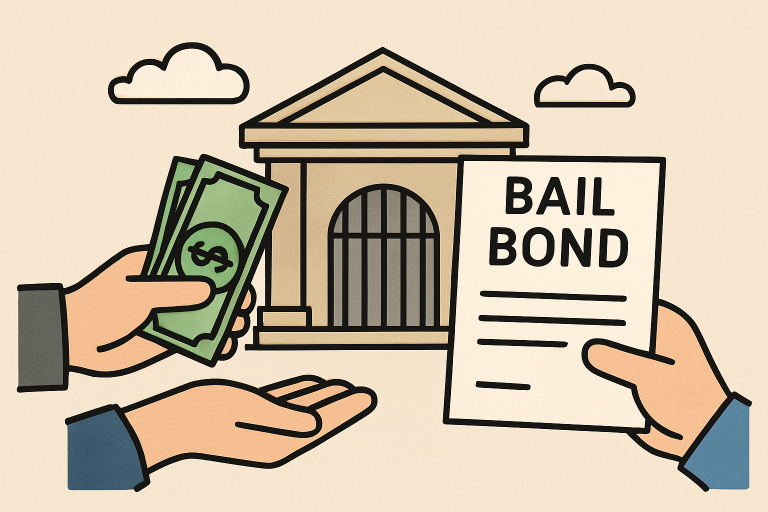Navigating the legal system can be overwhelming, particularly for individuals facing arrest for the first time. A critical, yet often misunderstood aspect is the bail bond process. Far too often, confusion stems from the abundance of myths and misinformation, which can impact the choices you make at a crucial moment. Seeking accurate knowledge about local bail bondsman Wilkesboro NC can be the difference between making informed decisions and feeling lost in the legal maze. It’s essential to recognize that bail bond services exist to offer options, clarity, and support during challenging times. Misconceptions about costs, procedures, and risks can amplify anxiety—not just for the accused, but for their loved ones as well. By dispelling these myths, individuals can face the pretrial process more confidently and avoid easily preventable mistakes. Understanding how bail bonds work—and what they do not do—can save time, money, and stress, empowering you to protect your rights and resources. Let’s dive into the most common myths and the facts that can set you on the right path.
Bail Bonds Are the Same as Bail
Bail and bail bonds are often confused, but they are distinct entities. Bail refers to the sum of money or property specified by a court that must be posted to release a defendant from jail until their court date temporarily. Its purpose is to guarantee that the accused returns for their scheduled hearings. On the other hand, a bail bond is an agreement made through a licensed bail bondsman: the bondsman promises the court to pay the full bail amount if the defendant fails to appear, typically charging the defendant a percentage of the bail as a non-refundable fee. This key distinction shapes how you approach securing a release for yourself or a loved one, ensuring realistic expectations about responsibilities and financial obligations.
Bail Bonds Are Only for Serious Crimes
Many people mistakenly believe that bail bonds are reserved solely for those accused of serious felonies. In reality, bail bonds are available for a wide range of charges, from relatively minor offenses, such as traffic violations and misdemeanors, to more severe criminal allegations. The primary role of bail bonds is to allow the accused to regain their freedom while awaiting trial, irrespective of the nature of the charge, provided the court grants bail.
This valuable option ensures that defendants can continue fulfilling family, work, and community obligations as they prepare for their defense, rather than languishing in pretrial detention.
Bail Bonds Are Unaffordable
Anxiety about costs can stop people from seeking bail bond services. Contrary to the myth, bail bonds are designed to be accessible. Bail bond agencies typically charge a fee—commonly around 10% of the total bail amount—which makes posting bail manageable for individuals who cannot afford the full sum. Unlike paying the full bail in cash, using a bail bond means you pay only a part of the whole, spreading the financial burden across manageable installments or payments when possible. This model offers a practical solution for many families, keeping resources available for other crucial expenses, such as hiring legal representation or covering living costs during the legal process.
Bail Bondsmen Can Negotiate Bail Amounts
Some believe that when a bail bondsman is involved, the amount of bail can be reduced through negotiation. In fact, licensed bondsmen have no authority to change or negotiate bail amounts, a function reserved solely for the courts. Bail is determined during a hearing and is based on several factors, including the defendant’s flight risk, criminal record, and the seriousness of the alleged crime. Bail bondsmen are invaluable for posting bail efficiently and advising on compliance with court requirements, but their role does not extend to influencing court decisions regarding bail amounts.
Using a Bail Bond Means Losing All Your Money
Fear of financial loss often deters defendants and their families from seeking help from bail bond agents. The truth is that only the fee paid to the bondsman (usually 10% of the bail) is nonrefundable, as it’s the cost for offering their service and assuming the risk. The remaining bail amount is only forfeited if the defendant fails to appear in court as required and the court declares the bail forfeited. When you use a bail bond, you’re not risking the total bail sum, and you retain access to the majority of your funds.
Conclusion
Dispelling myths about bail bonds is crucial for anyone navigating the judicial pretrial system. Knowing these facts helps reduce unnecessary stress and ensures that individuals can approach the process with a clear understanding and realistic expectations. If you or a loved one needs help with bail, rely on reputable professionals who can provide guidance, ensuring your rights and interests are protected throughout the legal journey.

